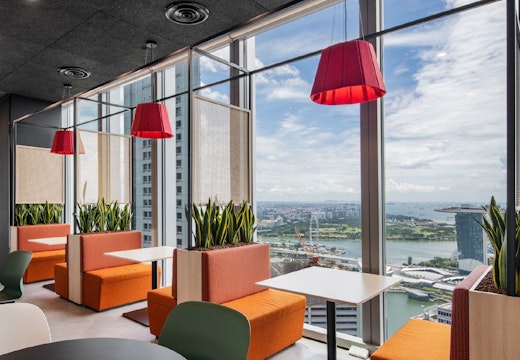London Art Deco heritage office set to become life sciences hub
The conversion of a listed Bloomsbury Square office building into a lab-enabled space for start-ups and big pharma reflects a wider trend toward investment in healthcare-related real estate
As London looks to repurpose office space for the new world of work, a centrally located Grade-II listed office building in Bloomsbury Square is set to be converted a 300,000 sq ft life sciences hub.
Real estate developer Oxford Properties Group, and Pioneer Group, one of the UK’s first nationwide companies to combine laboratory development and operation with venture building, have appointed Wates Group as the main contractor for the Victoria House conversion. The main phase is due to complete this autumn.
The project will convert 220,000 sq ft of the building’s 300,000 sq ft internal area into Grade A wet lab-enabled life sciences space. The floor-to-ceiling height, internal infrastructure and scale of the floor plates are said to make the property well suited to conversion to a life sciences facility.
Ecosystem of occupiers
The converted unit has been designed to house an ecosystem of occupiers, ranging from start-ups in designated incubator spaces to larger pharmaceutical companies, as well as firms supporting the life sciences industry.
The property will feature 80,000 sq ft of office, amenity, meeting and retail spaces to provide a high-quality workplace experience, highlighted by heritage meeting rooms, a club lounge on the eighth floor, and a roof terrace overlooking central London.
The BioIndustry Association (BIA), the trade association for UK life sciences, has been announced as the property’s first life science ecosystem occupier. It is making Victoria House its new headquarters.
Art Deco details
As a Grade-II listed building, Victoria House boasts several heritage features behind its neo-classical facade, comprising many examples of Art Deco design details, such as a ballroom, ornamental brasswork, and the original Italian marble entrance lobby.
In the conversion, the main fabric of the building, including its heritage finishes and features, will be retained, along with the existing original windows.
The development will focus heavily on customer wellbeing and sustainability, with the project on track to achieve BREEAM Excellent certification. Wates, in partnership with SES Engineering Services, will work to reduce the operational and embodied carbon footprint of the building through renewable technology and implementing modern methods of construction, such as utilising offsite prefabricated modules for mechanical and electrical (M&E) services.
The existing M&E infrastructure will be upgraded, including installing energy-efficient LED lighting and heat recovery throughout the air conditioning system. Air source heat pumps will provide the main heating for the finished building.
Knowledge Quarter
Victoria House sits within London’s Knowledge Quarter in the immediate vicinity of the King’s Cross life sciences hub. It offers close proximity to several world-renowned universities, hospitals and medical research centres, including University College London, GSK and Great Ormond Street Hospital.
According to Oxford Properties, this prime London location gives Victoria House a competitive advantage compared with the city’s existing life sciences space and immediate development pipeline, which is predominantly in edge-of-town and fringe locations.
‘A refurbishment differentiated by a mix of modern lab space and heritage design…’
Robin Everall, head of development, Europe, at Oxford Properties, comments “The location, amenities and historical character of Victoria House make it one of the most unique and complex refurbishments of its kind, differentiated by a mix of modern lab space and heritage design, and our aim is to transform it into a hub that will nurture life sciences ecosystems in close proximity to the city’s Knowledge Quarter.
Oxford Properties and Pioneer Group have appointed CBRE and JLL as leasing agents in the Victoria House project.
News of this UK-based development follows a report from the from the Urban Land Institute and PwC, ‘Emerging Trends in Real Estate® United States and Canada 2024’, which forecasts that prospects for healthcare-related workplaces are higher than those for both city-centre and suburban office real estate.








